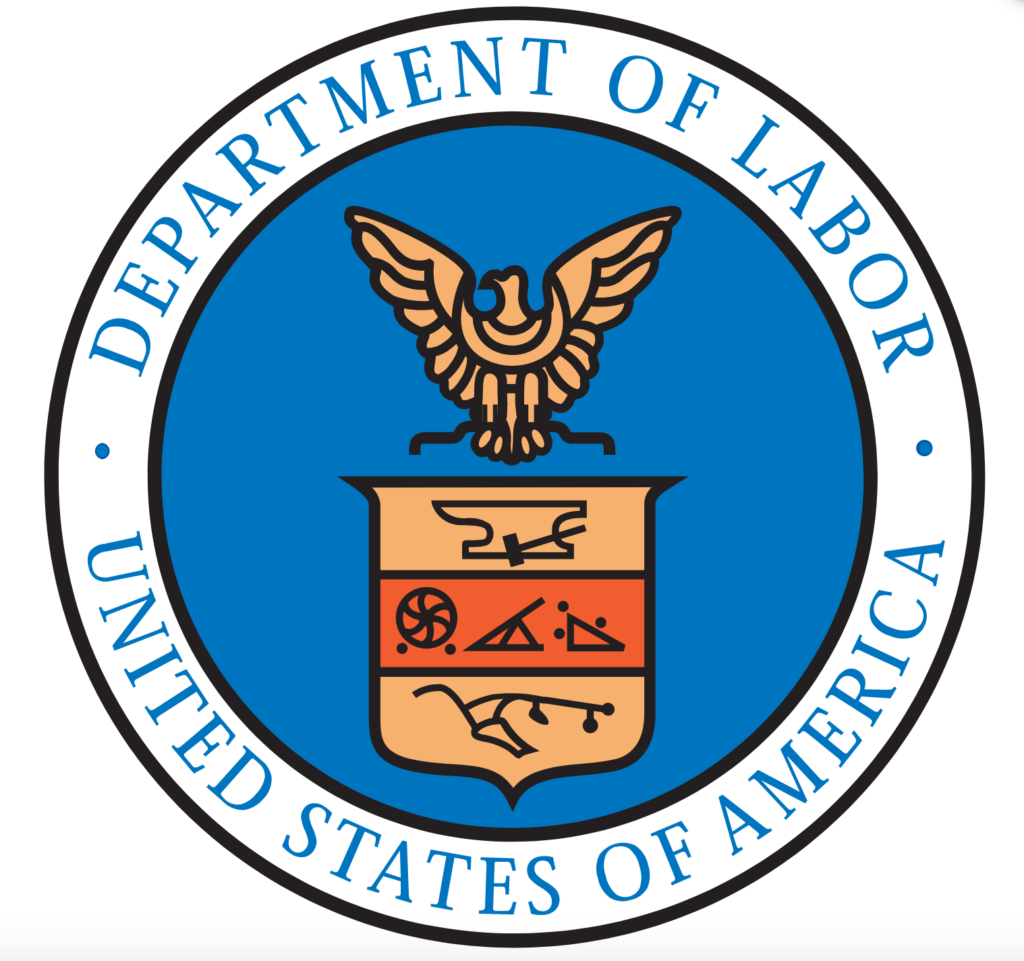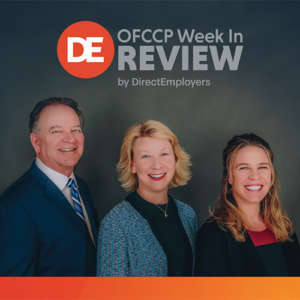Tuesday, July 6, 2021: Open Virtual Meeting on Veteran Employment & Employer Outreach

Meeting Topic
The U.S. Department of Labor’s (USDOL) core veteran employment programs and services and to raise employer awareness of the advantages of hiring veterans.
Meeting Details
Date: Thursday, July 29, 2021
Time: 9:00 AM – 12:00 PM (EST)
There will be an opportunity for individuals or organizations to address the Committee. Any individual or organization that wishes to do so should contact Mr. Gregory Green at ACVETEO@dol.gov.
The meeting will be held via TEAMS and teleconference. Meeting information will be posted under the Meeting Updates tab.
See the announcement for a detailed agenda.
Friday, July 9, 2021: President Biden Signs Executive Order With Four Employment Implications

The White House also issued a companion Fact Sheet.
The wide-ranging Order directs federal Executive Branch agencies to undertake regulatory action and review and implement policies President Biden believes are necessary to combat perceived market monopolies and assertedly expand critical services necessary to protect smaller businesses, workers, and consumers.
The President’s Order has four important employment-related components:
First, the Executive Order creates a White House Competition Council within the Executive Office of the President, tasked with overseeing federal efforts to address overconcentration, monopolization, and unfair competition in the marketplace. The Council will seek to coordinate work across federal agencies to address identified issues and ensure compliance with federal antitrust laws. The President’s now familiar resort to the use of a “White House Council” is unusual in that most prior Presidents have simply charged the federal Executive Branch agencies charged with the at-issue mission to lead any reform efforts and invigorated their Cabinets as the vehicle of inter-agency communication and coordination.
Second, the employment-related impact results from the Executive Order’s request to the Chair of the Federal Trade Commission (“FTC”), an independent regulatory agency outside the federal Executive Branch of government, that he work with the rest of the Commission to draft and implement Rules under the Federal Trade Commission Act to enhance the protections of consumer financial products and services. The President’s Order also requested that the FTC, encouraging its Director of the Consumer Financial Protection Bureau, draft a Rule to assist the portability of consumer financial transaction data. The Order also requests the FTC to increase enforcement of prohibitions on unfair, deceptive, or abusive acts or practices in consumer financial products or services. Given the recent privacy protection laws a number of states within the United States have implemented, such as California’s Consumer Privacy Act, this may be the first step to attempt to implement a federal data privacy law similar to the European Union’s General Data Protection Regulation and the United Kingdom’s Data Protection Act. A central concern of these privacy and data protection laws has been the protection of digitized employment data.
Third, the Executive Order requests the FTC to consider publishing Rules to remove unnecessary or unfair occupational licensing restrictions. The President seeks an easing of occupational licensing restrictions to broaden the access of minorities and women to certain occupational fields, and assertedly to increase competition by admitting more participants to the marketplace who are currently excluded.
Fourth and finally, and most importantly, the Executive Order requests the FTC to consider how it may be able to restrict the use of non-compete clauses and other types of agreements by businesses that limit worker mobility. As most employers know, each state has passed statutes and Rules to protect trade secrets and the time and resources employers invest to train and develop their employees. These restrictions range from providing protections to businesses so long as the restrictive covenant is reasonable in duration and geographic location, to being expressly prohibited in almost all situations (as in California, where Business & Professions Code § 16600 et seq. prohibits restrictive covenants on employees except in very limited circumstances related to ownership or equitable stake in the former corporate business). The Executive Order’s request to the FTC is a continuation of the Biden Administration’s stated goal of expanding worker protections. You will recall the President’s recent efforts to call for the banning of the use of arbitration agreements by federal contractors as to their employees, seeking to increase in the salary component of the overtime exemptions under the Fair Labor Standards Act to increase access to overtime for employees, and increasing the minimum wage federal contractors must pay their employees.
Beyond employment-related issues, the Biden Executive Order also requests the heads of federal Executive Branch agencies use their authorities to further policies in pursuit of antitrust objectives, including:
- Recommending the Attorney General and Secretary of Commerce review positions on intellectual property rights and antitrust laws, including oversight over bank mergers under the Bank Merger Act and the Bank Holding Company Act of 1956;
- Requesting the Chair of the FTC work with the rest of the Commission to implement Rules pursuant to the Federal Trade Commission Act to prohibit agreements to delay to market generic drugs or biosimilars based on pharmaceutical company patents or creations; address unfair competition in major internet marketplaces by adopting broader “net neutrality” rules, revising how future spectrum auctions are conducted to ensure availability to more licensees, and prohibiting early termination fees on consumers;
- Requesting the Secretary of Transportation to consider publishing Rules to promote transparency and consumer safeguards in commercial air travel and rail service;
- Requesting the Secretary of Health and Human Services draft a proposed Rule allowing for over-the-counter purchase of hearing aids, promote price transparency initiatives for health care providers and insurers, implement standardized options in the marketplace, create a plan to combat excessive pricing of prescription drugs and enhance domestic pharmaceutical supply chains, and address increasing the utilization of generic drugs and biosimilars;
- Requesting the Secretary of Agriculture review and implement Rules to abate the assertedly unfair treatment of small farmers and improve conditions of competition in the livestock trade, and improve accessibility to market for smaller or independent liquor operations; and
- Requesting the Secretary of Defense review the state of competition within the private defense industry and draft Rules forbidding contract terms restricting the ability of the Department of Defense to repair its own equipment.
The Executive Order does not implement new Rules or requirements which go immediately into effect or which impose immediate action on the part of business. However, the Executive Order does outline an overall plan to bring to bear the full resources of the federal government to promote competition in the workplace and seek to protect consumer access to services and purported “infrastructure.” Accordingly, employers should be on the lookout for new Rules and policies various federal Executive agencies may propose to implement the more than 70 different recommendations the Executive Order made.
Friday, July 9, 2021: U.S. House of Representatives Appropriations Committee Approves Biggest Budget Ever for OFCCP

The Senate Appropriations Committee will also take up consideration of a budget for the Labor Department, including OFCCP’s budget, in coming weeks. If the Senate were to agree on the President’s proposed $140 million budget for OFCCP, it would be OFCCP’s largest budget ever, by far. OFCCP budgets in the last decade have weighed in between $99 million annually to a high of slightly over $106 million with an average of around $104 million.
THIS COLUMN IS MEANT TO ASSIST IN A GENERAL UNDERSTANDING OF THE CURRENT LAW AND PRACTICE RELATING TO OFCCP. IT IS NOT TO BE REGARDED AS LEGAL ADVICE. COMPANIES OR INDIVIDUALS WITH PARTICULAR QUESTIONS SHOULD SEEK ADVICE OF COUNSEL.
SUBSCRIBE.
Compliance Alerts
Compliance Tips
Week In Review (WIR)
Subscribe to receive alerts, news and updates on all things related to OFCCP compliance as it applies to federal contractors.
OFCCP Compliance Text Alerts
Get OFCCP compliance alerts on your cell phone. Text the word compliance to 55678 and confirm your subscription. Provider message and data rates may apply.


